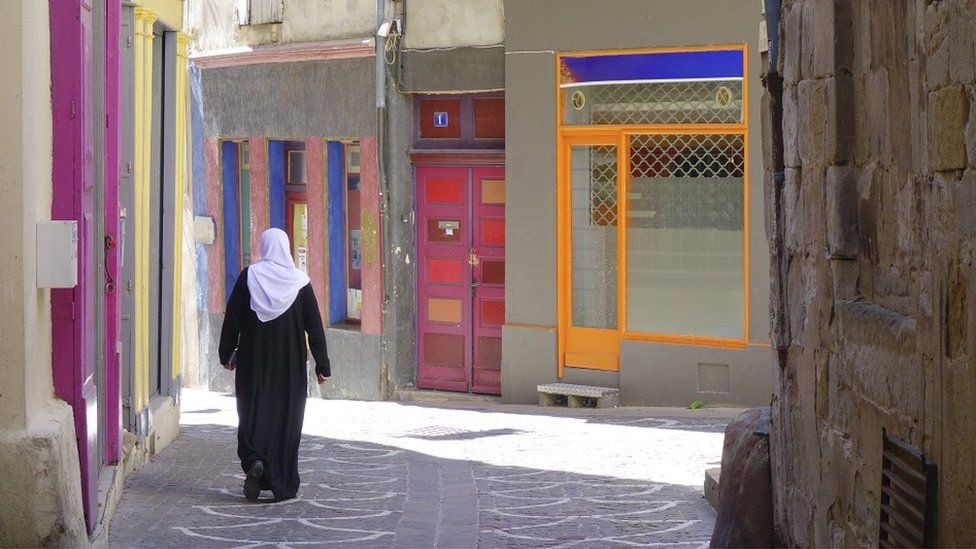France's Macron vows to fight 'Islamist separatism'
- Published

French President Emmanuel Macron has announced plans for tougher laws to tackle what he called "Islamist separatism" and defend secular values.
In a keenly awaited speech, Mr Macron said a minority of France's estimated six million Muslims were in danger of forming a "counter-society".
His proposals include stricter oversight of schooling and control over foreign funding of mosques.
But some accused Mr Macron of trying to repress Islam in France.
Under France's strict principles of secularism, or laïcité, the government is separated by law from religious institutions. The idea is that people of different religions and beliefs are equal before the law.
The country also has the largest population of Muslims in Western Europe. Many complain the authorities use secularism to specifically target them, for instance in banning the hijab.
Speaking outside Paris on Friday, Mr Macron said "Islamist separatism" was a danger to France because it held its own laws above all others and "often results in the creation of a counter-society".
He said this form of sectarianism often translated into children being kept out of school, and the use of sporting, cultural and other community activities as a "pretext to teach principles that do not conform to the laws of the republic".
"Islam is a religion that is in crisis all over the world today, we are not just seeing this in our country."
The measures announced by the president will form legislation that will go to parliament before the end of the year.
They include:
- stricter monitoring of sports organisations and other associations so that they do not become a front for Islamist teaching
- an end to the system of imams being sent to France from abroad
- improved oversight of the financing of mosques
- home-schooling restricted
Mr Macron also said France must do more to offer economic and social mobility to immigrant communities, adding that radicals had often filled the vacuum.
He speech was the fruit of many months of discussions with religious leaders and intellectuals, says the BBC's Hugh Schofield in Paris. It is being spun by the Élysée Palace as a sign that he wants to talk openly and without embarrassment about these issues.
Many also see the address as an attempt to appeal to right-wing voters ahead of the 2022 presidential election, our correspondent adds.
Some Muslims reacted angrily to Mr Macron's proposals on Friday.
"In a one hour speech #Macron burried [sic] #laïcité, emboldened the far right, anti-Muslim leftists and threatened the lives of Muslim students by calling for drastic limits on home schooling despite a global pandemic."
- Published26 September 2020
- Published10 February 2020
- Published17 October 2019
- Published23 August 2016